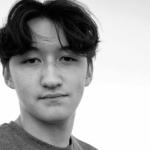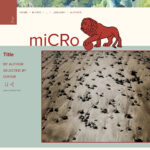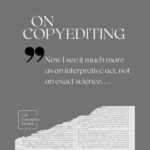As you will discover in her appreciation below, editorial assistant Jessica Brown is an intrepid and fearless traveler. She name-drops countries like rappers mention name brands. Argentina? Boom. J. Brown has been there. You want to know about Ghana? Hold those horses. J. Brown can tell you all about it. Based on our extensive Facebook-stalking research, we think it very likely that she’s also been to Ireland, judging by those pictures of emerald-green grassy knolls and moss-covered castles. That’s three continents right there, four if you count North America, her home (J. Brown doesn’t).
 Where hasn’t she been? China’s Great Wall? Russia’s dead Lenin? Norway’s famous fjords and the Winter Olympics bobsled infrastructure? You could take a shot, but we wouldn’t. We’re just saying it’s very likely J. Brown has been anywhere you might mention. Very likely. The tragedy in all this is that the one place J. Brown would love to go, she cannot. She is a rabid Harry Potter fan. We mean rabid. And now that J. K. Rowling is writing literary realism, all flights to Hogwarts are canceled. J. Brown has consoled herself by going to the fictional universe of “The Secret Boyfriend,” by Hugh Sheehy, from issue 9.2. , and she makes an insightful traveling companion.
Where hasn’t she been? China’s Great Wall? Russia’s dead Lenin? Norway’s famous fjords and the Winter Olympics bobsled infrastructure? You could take a shot, but we wouldn’t. We’re just saying it’s very likely J. Brown has been anywhere you might mention. Very likely. The tragedy in all this is that the one place J. Brown would love to go, she cannot. She is a rabid Harry Potter fan. We mean rabid. And now that J. K. Rowling is writing literary realism, all flights to Hogwarts are canceled. J. Brown has consoled herself by going to the fictional universe of “The Secret Boyfriend,” by Hugh Sheehy, from issue 9.2. , and she makes an insightful traveling companion.
Jessica Brown: Hugh Sheehy’s “The Secret Boyfriend” follows a young woman as she travels through Colombia with her boyfriend Billy, seemingly shadowed by a mysterious man named James. One reason I love this story is that the plot—meeting James, leaving Billy, staying in Colombia—isn’t really the point. Instead, James is an excuse for the narrator to chase after another version of herself, a version “not quite in this world, but close, so much so that I knew the wild taste of her mouth.”
This story resonates so strongly for me because I have felt that same self-dislocation. You think traveling will change you, will make you better. But instead, you get the loneliness of a dim hostel bedroom or an empty bar with plastic tables and a dusty Coke sign on the far wall. You end up waiting on the side of a dusty road for a taxi you’re pretty sure is going to come. Eventually. The narrator’s confusion mirrors moments in my life when I was “tormented by my certainty that outside our room, true excitements went on without me.” I thought of the evening I spent sitting in a hotel room in Formosa, Argentina, watching Dances with Wolves in Spanish on a tiny television chained to the wall. I thought of the day I spent eight hours stranded at a bus station in Accra, Ghana. I thought of the time I chose not to join my friends on a spontaneous trip to France. I was afraid I wouldn’t have time to finish my homework.
The characters in “The Secret Boyfriend” resist easy judgments, just as “motives tend to resist easy names.” I can’t dismiss Billy as just a petulant American tourist; I can’t condemn the narrator for going off with a stranger in Colombia. She thinks of her wild, alternate self, “If I went home, I would never get to know her. I would remember this night, this moment, but the feeling itself would die and, like dead things, stay that way.” So when she is faced with an opportunity to push further, she takes it—for better or worse.










